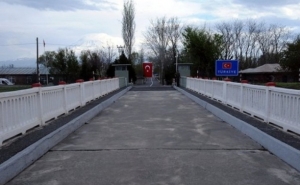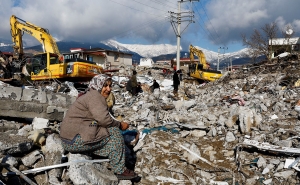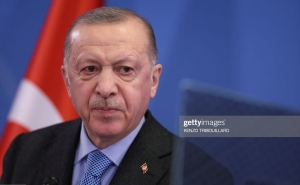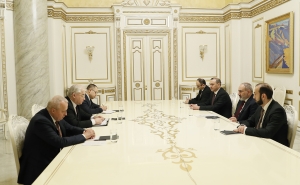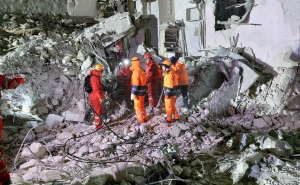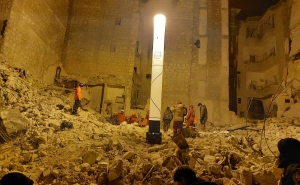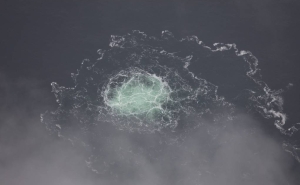 The First Signs of Russian-Turkish Crisis Settlement
The First Signs of Russian-Turkish Crisis Settlement
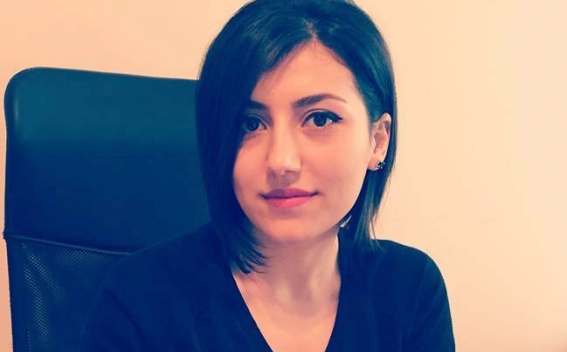
Since November 2015 relations between Russia and Turkey have been at the center international attention, making us develop a new strategy to avoid challenges resulting from the crisis and to take advantage of new opportunities.
The downing of the Russian Su-24 bomber by Turkey on November 24 opened a new chapter in the relationship of these two countries, turning the close allies of the recent years into uncompromising rivals.
At first it seemed Moscow and Ankara will hardly prefer to lead Russia-Turkey relations to a final deadlock. It was expected that after the first tough statements they will soften their position, but it did not happen. On the contrary, Russia and Turkey began using all their cards in order to harm each other as much as possible.
Russia, perceiving the downing of the Russian Su-24 bomber as a betrayal, contributed to the final failure of Turkey's Syrian policy, including the airstrikes to help the Syrian Army to cut off the main supply lines of terrorists that come from Turkey. Moscow even went further, touching more sensitive issues for Turkey, such as the Syrian Turkmens and Kurds. Russia also greatly damaged Turkish economy that was already suffering due to recent regional developments.
Turkey, in its turn, outwardly avoiding sound actions, took active steps at diplomatic level, once again activating the Crimean Tatars’ factor. Russia has become the main promoter of the Turkish-Ukrainian cooperation. It especially became obvious during the official visit of the President of Ukraine Petro Poroshenko to Turkey. Both sides decided to enhance strategic partnership between Ukraine and Turkey in the sphere of security and defense amid the "aggressive policy of Russia".
About 4 months have passed since the Russian-Turkish tensions have started to decrease. On March 24 Rosaviation permitted Ural Airlines to operate regular passenger flights to Antalya (the ban on charter flights between Russia and Turkey was introduced by Moscow on December 1, 2015).
On the same day the Russian Foreign Ministry spokeswoman Maria Zakharova said the crisis between Russia and Turkey is a temporary one. Later Russian Federation Council speaker Valentina Matviyenko said Moscow is ready to unfreeze relations with Ankara if Turkey admits its responsibility. Russia is waiting for Turkey’s further steps.
It should be reminded that Russia wants Turkey to apologize, pay compensation for damage and punish those who are guilty for the incident.
The current situation reminds the "Mavi Marmara" incident which became the reason of the deterioration of relations between Israel and Turkey in 2010. Ankara also wanted Israel to apologize and pay compensation. In 2013 Tel-Aviv apologized with the mediation of the US President Barack Obama, after which they started the settlement process. Today Turkey and Israel announce about significant progress in the process.
However, it should be noted that Russia refuses all the possible mediations to overcome the crisis with Turkey. Such mediation attempts have been made by Azerbaijan, Kazahkstan, Qatar. It is not excluded that Germany and the US have also made such attempts.
The current situation in the region also contributes to the normalization of relations. Particularly, after losing its last leverages in Syria, Turkey understands the need to cooperate with Russia, also taking into consideration the key role that Russia has taken in the Syrian crisis.
On the other hand, the dialogue with Turkey will give Russia a chance at least to neutralize Turkey's destructive stance on the Syrian settlement process. And it will greatly increase Russia’s international reputation.
The successful experience of cooperation during the same Syrian conflict is enough to understand that these two countries are able to put aside their differences when it refers to their interests.
Other materials on this subject
- Alexander Novak: Russia reached agreement with Azerbaijan on increase of natural gas deliveries "There is an agreement with Azerbaijan to increase our supplies because they still have a gas deficit," he said.
- UN Secretary-General Condemns Attack Near Russian Embassy in Kabul The secretary-general conveys his condolences to the families of the deceased and wishes a speedy recovery to the injured.
- Russia and Iran To Introduce a Visa-free Regime The mode will be valid for groups of 5 to 50 people.
- Russia MFA: Azerbaijan-EU Natural Gas Agreement Does not Contradict Baku Allied Cooperation with Moscow Each and every country has the right to independently decide how and with whom to develop its relations, including in the oil and natural gas sector.
- The United States Announced Its Readiness For a Dialogue With Russia on the Future of Arms Control We are ready to resume dialogue with Russia to shape the future of modern arms control if Russia is ready to act in good faith.
Other materials on this subject
- 2 dead, 2 injured after fire at lodging section of Armenian Catholic Church in Istanbul He said the firefighter-rescue team arrived immediately. Armenian Catholic Archeparch of Istanbul Archbishop Lévon Zékiyan was also on the scene.
- Turkey is sending Cold War-era cluster bombs to Ukraine – FP The weapons are designed to destroy tanks by bursting into smaller submunitions, which can linger on the battlefield for years if they do not immediately explode. Each round scatters about 88 bomblets.
- Fire erupts in Turkey’s Black Sea port of Samsun following explosion The causes for the explosion that led to a fire are currently being analyzed.
- EU Urges Turkey to Stop Offering Russia Solutions to Circumvent Sanctions Speaking about the EU's engagement with Turkey, an important neighbor, EU partner and candidate country for EU membership, we stress the importance of ensuring that Turkey's foreign policy is aligned with...
- Any Change of Internationally Recognized Borders in Region is Unacceptable – Iranian President to Erdogan "The basis of our policy in the region is that the fates of the countries must be determined by themselves and that their national sovereignty and territorial integrity must be respected" Raisi told Erdogan...
-
 17:08
17:08The regular session of the Anti-corruption Policy Council takes place in Jermuk
-
 15:05
15:05The Prime Minister sends congratulatory messages to the supreme leader of Iran and the President of Iran
-
 11:11
11:11Armenia sends earthquake aid to Turkey
-
 10:43
10:43Commemoration of the Pontiff St. Sahak Partev
-
 09:16
09:16Some roads are closed and difficult to pass in Armenia
-
 19:55
19:55Phone conversation of the Foreign Minister of Armenia with the U.S. Assistant Secretary of State for European and Eurasian Affairs
-
 18:30
18:30Prime Minister Pashinyan and President Khachaturyan meet
-
 18:20
18:20Ararat Mirzoyan with Co-Chairman of the OSCE Minsk Group of France Brice Roquefeuil
-
 17:01
17:01Humans could land on Mars within 10 years, Musk predicts
-
 16:45
16:45France, US urge 'immediate' end to Nagorno Karabakh blockade
-
 16:01
16:01Blockaded Nagorno Karabakh launches fundraiser to support quake-hit Syria
-
 15:59
15:59Earthquake death toll in Turkey rises to 18,342
-
 15:43
15:43Ararat Mirzoyan Held a Telephone Conversation with Sergey Lavrov
-
 15:06
15:06French president rules out fighter jet supplies to Ukraine in near future
-
 14:47
14:475 Day Weather Forecast in Armenia
-
 14:44
14:44President Vahagn Khachaturyan wrote a note in the book of condolences opened in the Embassy of Syria in Armenia
-
 14:20
14:20Azerbaijan’s provocations impede establishment of peace and stability – Armenian FM tells Russian Co-Chair of OSCE MG
-
 12:57
12:57France representation to OSCE: Paris calls on Azerbaijan to restore freedom of movement through Lachin corridor
-
 11:40
11:40Command of Kosovo forces highly appreciated preparation of Armenian peacekeepers
-
 10:16
10:16The United States withdrew from sanctions against Syria for six months the provision of assistance after the earthquake
day
week
month
Humidity: %
Wind: km/h


